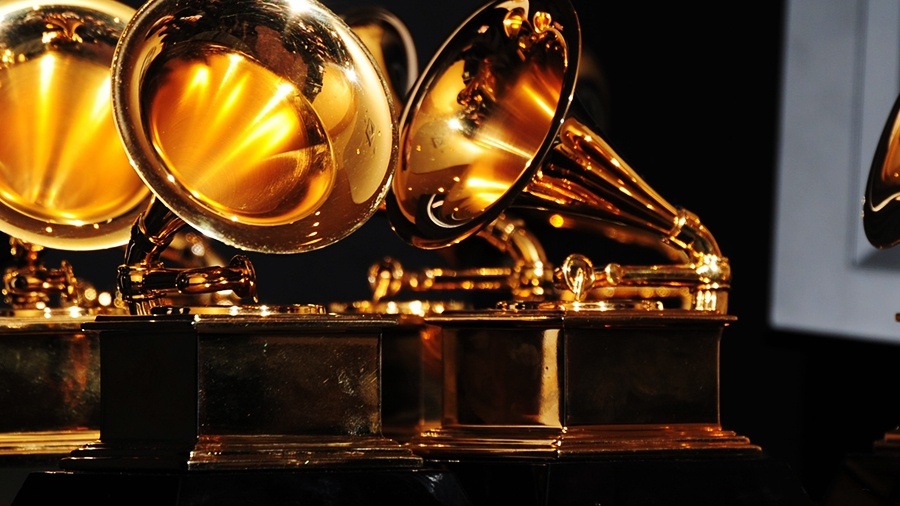The 61st Annual Grammy Awards ceremony took place in Los Angeles yesterday. Here are excerpts from the winning albums in the classical categories:
Best Orchestral Performance
“Shostakovich: Symphonies Nos. 4 & 11”- Andris Nelsons, conductor (Boston Symphony Orchestra)
This recording is the latest installment in a Shostakovich cycle featuring Nelsons and the Boston Symphony. Earlier recordings in the set won in the same category in the 2016 and 2017 Grammys. Additionally, this recording was awarded Best Engineered Album, Classical (Shawn Murphy and Nick Squire, engineers; Tim Martyn, mastering engineer).
Symphony No. 11, subtitled The Year 1905 in reference to the revolutionary social unrest that spread through the Russian Empire that year, was written in 1957 following the Soviet invasion of Hungary. Amid the haunting political undercurrents of this four-movement work you’ll hear echoes of Mahler.
Best Opera Recording
“Bates: The (R)evolution of Steve Jobs”- Michael Christie, conductor; Sasha Cooke, Jessica E. Jones, Edward Parks, Garrett Sorenson and Wei Wu; Elizabeth Ostrow, producer
The music of contemporary American composer Mason Bates (b. 1977) mixes electronic sounds with the traditional orchestra. This can be heard in Bates’ 2017 one-act opera, jointly commissioned by Santa Fe Opera, Seattle Opera, San Francisco Opera, the Jacobs School of Music at Indiana University.
Regarding the subject of Steve Jobs, Bates notes that opera
can illuminate the interior thoughts of different characters simultaneously through the juxtaposition of individual themes. That makes it an ideal medium to explore a man who revolutionized how we communicate.
Best Choral Performance
“McLoskey: Zealot Canticles”- Donald Nally, conductor (The Crossing)
Lansing McLoskey’s Zealot Canticles, a concert-length choral oratorio for clarinet, string quartet, and choir, is based on Twelve Canticles for the Zealot by the Nigerian poet and Nobel laureate Wole Soyinka. Here is the opening track, Renunciation. Preludium:
Best Chamber Music/Small Ensemble Performance
“Anderson, Laurie: Landfall”- Laurie Anderson and Kronos Quartet
The work of American avant-garde composer Laurie Anderson blends performance art, film, and electronic sounds. The 70-minute, atmospheric multimedia piece, Landfall, was written in 2012 in the aftermath of Hurricane Sandy.
Here are the third and fourth tracks, “The Water Rises” and “Our Street Is a Black River”:
Best Instrumental Solo
“Kernis: Violin Concerto”- James Ehnes; Ludovic Morlot, conductor (Seattle Symphony)
In addition to Aaron Jay Kernis’ Violin Concerto, this album includes a newly-written Violin Concerto by film composer James Newton Howard (with the Detroit Symphony Orchestra) and Bramwell Tovey’s Stream of Limelight.
Kernis’ Violin Concerto was awarded this year’s Best Contemporary Classical Composition. The opening of the second movement, Ballad, shimmers with impressionistic color:
Best Solo Vocal Album
“Songs of Orpheus – Monteverdi, Caccini, D’india & Landi”- Karim Sulayman; Jeannette Sorrell, conductor; Apollo’s Fire, ensembles
The outstanding Lebanese-American tenor Karim Sulayman was one of my fellow students at the Eastman School of Music in the 1990s. Here is his performance of Rosa del ciel from Monteverdi’s L’Orfeo:
Best Classical Compendium
Fuchs: Piano Concerto ‘spiritualist’; Poems of Life; Glacier; Rush”- Joann Falletta, conductor; Tim Handley, producer (London Symphony Orchestra)
Guitarist and composer D.J. Sparr, another one of my Eastman classmates, performs Glacier (Concerto for Electric Guitar and Orchestra), written by American composer Kenneth Fuchs in 2015. Here is the final movement, Going to the Sun:

